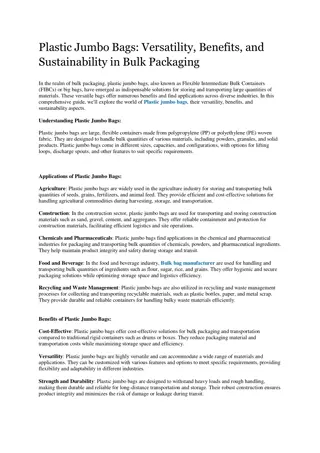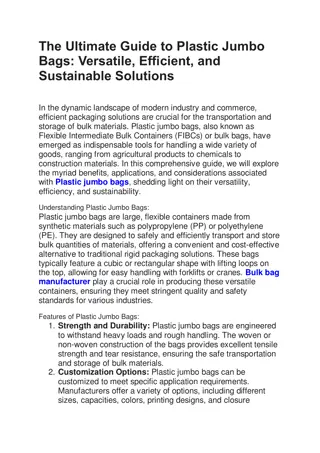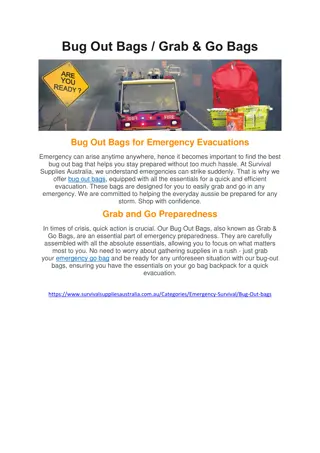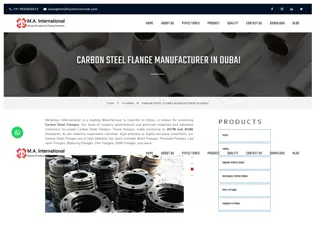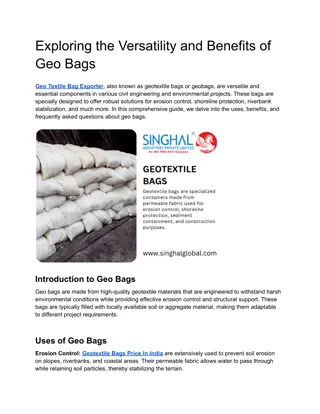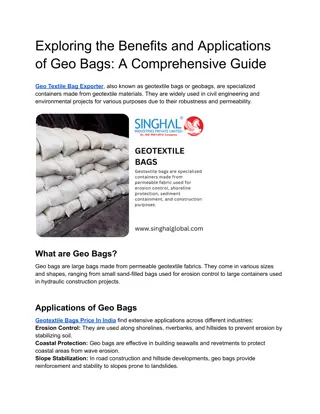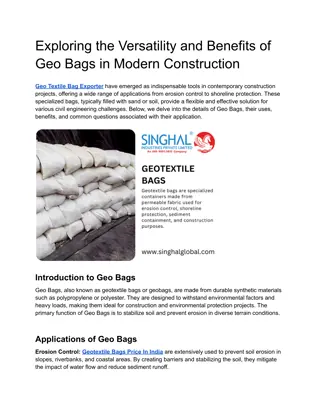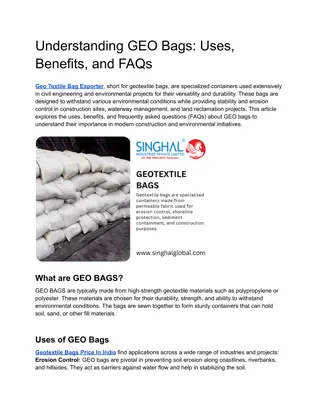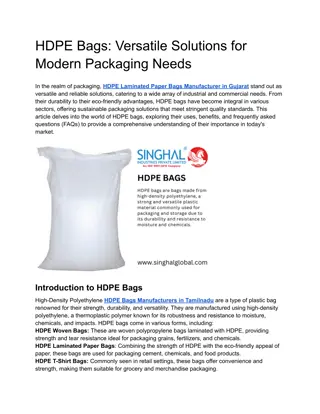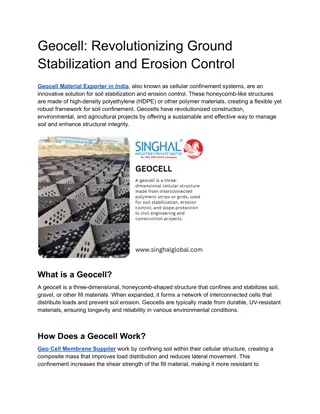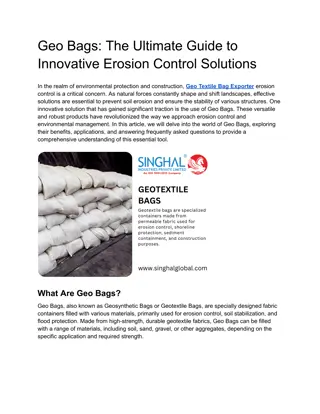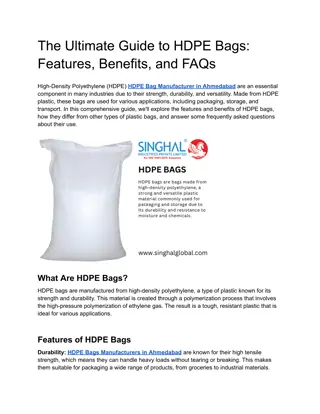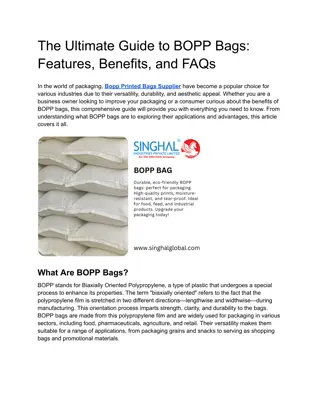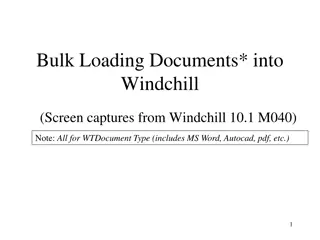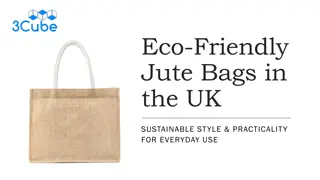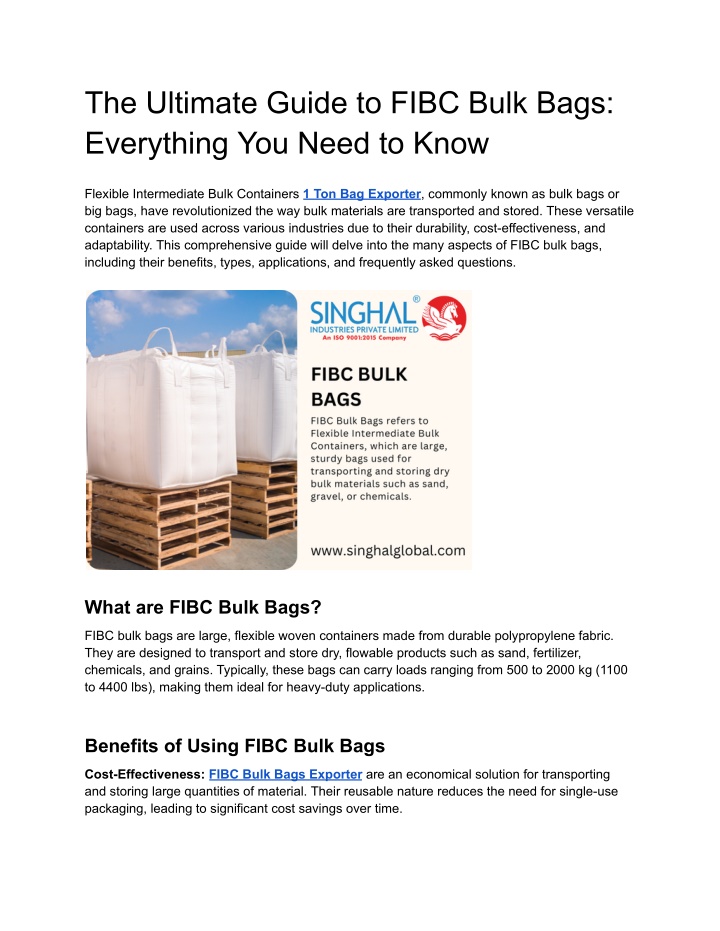
Reliable FIBC Bulk Bags Exporter for Your Business Needs
Looking for a dependable FIBC bulk bags exporter? Look no further! Our company specializes in providing high-quality FIBC bulk bags that cater to various industrial requirements. With a strong commitment to quality and customer satisfaction, we ensur
Download Presentation

Please find below an Image/Link to download the presentation.
The content on the website is provided AS IS for your information and personal use only. It may not be sold, licensed, or shared on other websites without obtaining consent from the author. If you encounter any issues during the download, it is possible that the publisher has removed the file from their server.
You are allowed to download the files provided on this website for personal or commercial use, subject to the condition that they are used lawfully. All files are the property of their respective owners.
The content on the website is provided AS IS for your information and personal use only. It may not be sold, licensed, or shared on other websites without obtaining consent from the author.
E N D
Presentation Transcript
The Ultimate Guide to FIBC Bulk Bags: Everything You Need to Know Flexible Intermediate Bulk Containers 1 Ton Bag Exporter, commonly known as bulk bags or big bags, have revolutionized the way bulk materials are transported and stored. These versatile containers are used across various industries due to their durability, cost-effectiveness, and adaptability. This comprehensive guide will delve into the many aspects of FIBC bulk bags, including their benefits, types, applications, and frequently asked questions. What are FIBC Bulk Bags? FIBC bulk bags are large, flexible woven containers made from durable polypropylene fabric. They are designed to transport and store dry, flowable products such as sand, fertilizer, chemicals, and grains. Typically, these bags can carry loads ranging from 500 to 2000 kg (1100 to 4400 lbs), making them ideal for heavy-duty applications. Benefits of Using FIBC Bulk Bags Cost-Effectiveness: FIBC Bulk Bags Exporter are an economical solution for transporting and storing large quantities of material. Their reusable nature reduces the need for single-use packaging, leading to significant cost savings over time.
Durability: Constructed from high-strength polypropylene, FIBC bulk bags are designed to withstand the rigors of handling and transport. They are resistant to punctures, tears, and UV degradation, ensuring the safe transport of goods. Versatility: FIBC bulk bags come in various designs and sizes to suit different applications. Whether you need a bag with a spout for easy discharge or a ventilated bag for products that need to breathe, there is an FIBC bag to meet your requirements. Ease of Handling: Equipped with lifting loops, FIBC bulk bags are easy to handle using forklifts or cranes. This feature simplifies the loading and unloading process, reducing labor costs and improving efficiency. Environmental Benefits: By opting for FIBC bulk bags, companies can reduce their environmental footprint. These bags are reusable and recyclable, contributing to sustainability goals by minimizing waste. Types of FIBC Bulk Bags U-Panel Bags: 1 Ton Bags Manufacturer are constructed from three pieces of fabric: one for the bottom and two for the sides, forming a U-shape. These bags provide excellent stability and load distribution. Circular Woven Bags: Made from a single piece of tubular fabric, circular woven bags have no side seams, which enhances their strength and durability. They are ideal for fine and granular materials. Baffle Bags: Baffle bags have internal baffles sewn into the corners, maintaining a square shape even when filled. This design maximizes storage and shipping efficiency by optimizing space usage. Ventilated Bags: Ventilated FIBC bags have mesh panels that allow air circulation, making them perfect for storing and transporting perishable goods like fruits, vegetables, and wood. UN Certified Bags: These bags are specially designed to meet stringent safety standards for transporting hazardous materials. They undergo rigorous testing to ensure compliance with international regulations. Applications of FIBC Bulk Bags Agriculture: FIBC bulk bags are widely used in the agricultural sector for transporting and storing grains, seeds, fertilizers, and animal feed. Their durability and large capacity make them ideal for handling bulk agricultural products. Construction: In the construction industry, FIBC bulk bags are used to transport materials such as sand, gravel, and cement. Their robustness ensures that heavy loads can be moved safely and efficiently. Chemicals: Chemical manufacturers and distributors rely on FIBC bulk bags to transport powders, granules, and other bulk chemicals. The bags can be customized to include liners that provide additional protection against contamination and moisture.
Food Industry: FIBC bulk bags are used to transport dry food products such as sugar, flour, and salt. Food-grade FIBC bags are made from materials that meet strict hygiene standards to ensure product safety. Mining: The mining industry uses FIBC bulk bags for the transport of minerals, ores, and other extracted materials. The bags' strength and durability make them suitable for the demanding conditions of mining operations. Waste Management: FIBC bulk bags are also employed in waste management for the collection and disposal of industrial waste, recycling materials, and contaminated soil. Their large capacity and robust design make them effective for handling bulky waste. Conclusion FIBC bulk bags offer a practical and efficient solution for the transportation and storage of bulk materials across various industries. Their versatility, durability, and cost-effectiveness make them an indispensable tool in modern logistics and supply chain management. By understanding the different types, applications, and best practices associated with FIBC bulk bags, businesses can optimize their operations and achieve greater efficiency and sustainability. Frequently Asked Questions (FAQs) What are the standard sizes of FIBC bulk bags? FIBC bulk bags come in various sizes, typically ranging from 35 to 85 inches in height and 35 to 48 inches in width and length. The size can be customized based on specific requirements. How are FIBC bulk bags filled and emptied? FIBC bulk bags are usually filled through a top opening, which can be a spout, duffle, or open top. They are emptied through a bottom spout or by cutting the bag. The choice of filling and emptying mechanism depends on the nature of the material being handled. Can FIBC bulk bags be reused? Yes, FIBC bulk bags can be reused multiple times, provided they are handled and stored properly. It is important to inspect the bags for any damage before reuse to ensure safety and integrity. Are FIBC bulk bags recyclable? FIBC bulk bags made from polypropylene are recyclable. They should be cleaned and processed correctly to ensure that the material can be reused in the production of new bags or other plastic products.


